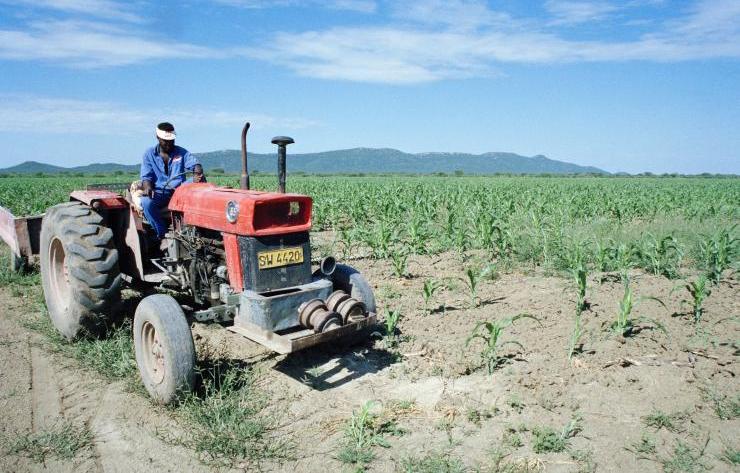Southern Africa: Peoples Once Again Dispossessed of Their Lands.

The Namibian government recently repealed a 2015 law that required at least 20% of company management to be in the hands of Namibians in order to prevent foreign ownership of mining resources – such as diamonds and uranium -.
According to the Ministry of Mines, it is a matter of “encouraging foreign investors concerned by this restrictive law”! A similar explanation is given in Zimbabwe, where the new president Emmerson Mnangagwa annulled a law introduced by Robert Mugabe that stipulated that for any foreign investment, 51% of company ownership must be in the hands of Zimbabweans. This was particularly true for diamonds and platinum.
Namibia, a territory as big as one and a half times the size of France, has 2.2 million inhabitants, about 5% are white people of South African and German origin who control a large part of the economy. But, as everywhere in Africa, a new fact must be added: there are 2% Chinese, more numerous than the former colonial masters-German, and major exporters, among others, of uranium. It is not surprising that the new colonial masters-Chinese, as well as foreign multinationals, had some influence in changing the law protecting Namibians. Chinese and multinational corporations are suspicious of corruption.
The mining sector employs 17,000 people and accounts for 12% of GDP. But since 2016, Namibia has been in recession, which may also explain the change in the mining law. This law is part of a more general framework called the New Equitable Economic Empowerment Framework (NEEEF) which copies the South African Broad-Based Black Economy Empowerment (BBBEE) system which is based on a fixed but voluntary quota of 26% of black South African participation in companies, especially in mining.
The Namibian NEEEF could be questioned, because all this is reportedly scaring away investors….. It is not only the mining sector that is at stake, but also agriculture, especially Cattle farming, the meat which Namibia has an outlet in Europe, and even in Switzerland for game. Namibian President Hage Geingob recently said that the dispossession of white farmers must move quickly, but that there was no question of doing so without compensation, citing the collapse of the economy under Mugabe in Zimbabwe. It’s the same thing in South Africa. The current plan is to sell the farms to the government on a voluntary basis.
By the end of 2015, only 27% of farmers had sold their farms (the target is 43%). However, as in Zimbabwe, it was not the poor who acquired them, but the functionaries and faithful servants of the State. They often make it their second home with a white steward! The areas are immense and require many skills that the black majority does not yet have. Last October in Windhoek a conference was held that was supposed to talk about land reform, but curiously there were few participants.
Those who had been dispossessed at the beginning of the 20th century by the German settlers, the Nama and Herero, did not come to claim compensation from Germany (which has already paid millions of ma1-ks for the whole country).
They realized that they too had taken the lands of Namibia’s first inhabitants, the Sanou Bochiman, during the great migrations to the south of southern Africa in the 17th and 18th centuries.
There is also a perception that statements about land dispossession without compensation are propaganda before the elections in Namibia and South Africa. Thus, the dreams of blacks during the liberation wars in Zimbabwe, Namibia and South Africa, formulated at the time in Marxist language and supported by Russia, East Germany and even China, were once again disappointed. The poorest blacks remain dispossessed of their lands by the vultures of a neoliberal capitalist system that leaves them out. Sad evolution. Africa is still in a bad position! It is not well defended by African executives themselves.
Christine von Garnier
Africa Europe Faith and Justice Network (AEFJN)
Switzerland



